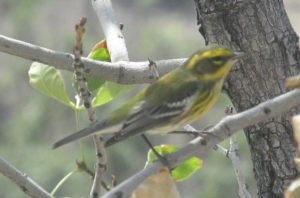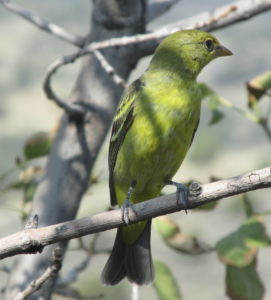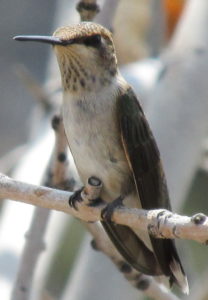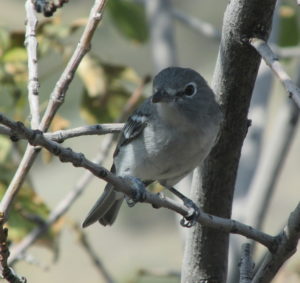Back in the day, bird identification came with a gun, not a pair of binoculars. Of course, the explorers and scientists didn’t have
a Peterson Guide on their desk. They quantified and qualified what would later make it into the Peterson Guide. Nearly two centuries ago, naturalist John K. Townsend was just out of graduate school and headed west on an expedition from Missouri. He found birds alright: “I think I never before saw so great a variety of birds. All were beautiful…and my game bag was teeming with its precious freight.”
Forty five species this week, highlighted by a Townsend Solitaire and Townsend Warbler.
Follow our weekly updates to appreciate the outstanding opportunities for wildlife spotting ‘round these parts! Sign up for our newsletter.
Mammals:
Black Tailed Jackrabbit
Cottontail Rabbit
Mule Deer
Coyote
Rock Squirrel
Brush Mouse
Skunk
Birds:
California Gull
White American Pelican
Grackle
Townsend’s Solitaire
Townsend’s Warbler
Yellow Warbler
House finch
Red Shafted Flicker
Tufted Titmouse
Black Capped Chickadee
Bushtit
Common Raven
Scrub Jay
Magpie
Turkey
Dark-Eyed Junco
Ringed Turtle Dove
Rock Dove
Western Kingbird
Mountain Bluebird
Meadowlark
Rufous-sided Towhee
Broad Tailed Hummingbird
Rufous Hummingbird
Chipping sparrow
Song sparrow
Black Headed Grosbeak
American Kestrel
Prairie Falcon
Red-Tailed Hawk
Killdeer
Starling
American Robin
Common Poor Will
Common Nighthawk
Alder Flycatcher (perhaps. See at right.)




You have pelicans in Utah?? Wow – who knew? I LOVE their prehistoric-dinosaur-ness. They must be pterodactyl’s first or second or thirtieth-once-removed cousins, don’t you think?
Who knew, indeed! I was surprised to see them in Iowa, too. They soar high, just south of the Great Salt Lake. And yes, kissing cousins with the pterodactyl, for sure.